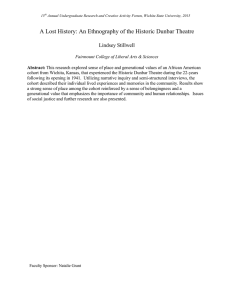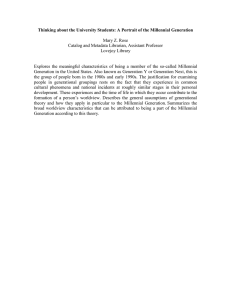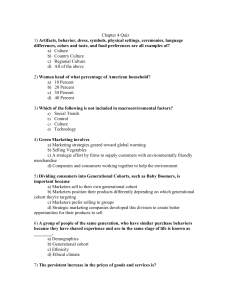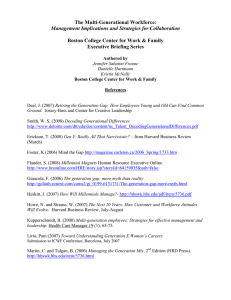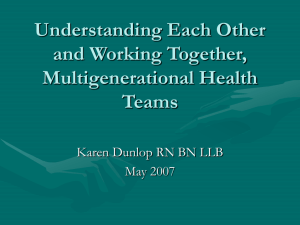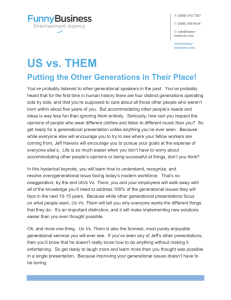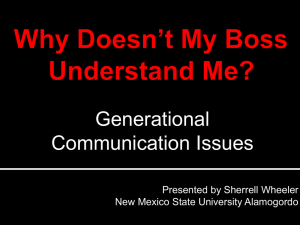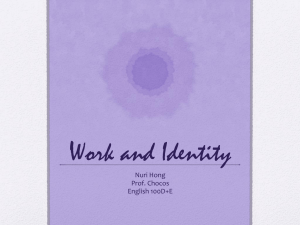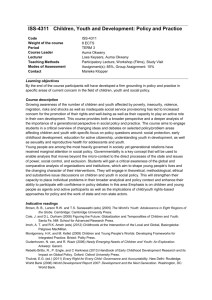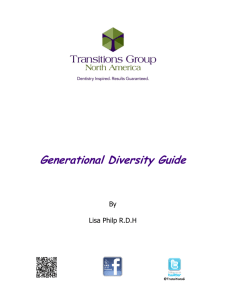Generations @Work
advertisement
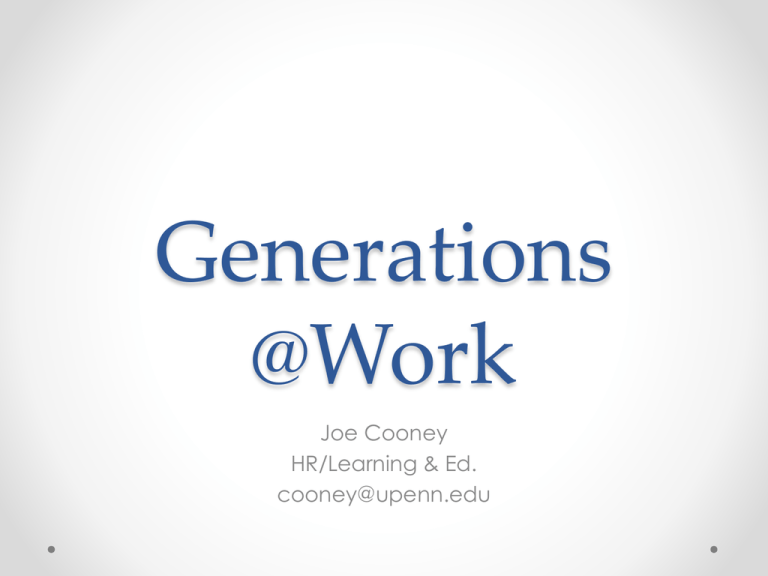
Generations @Work Joe Cooney HR/Learning & Ed. cooney@upenn.edu Key Questions: • • • • • What are the generational divides? What are the generational differences? How were these differences shaped? How do these differences create conflict? Does it really matter? What is a “Generation” A group of individuals who roughly, were born within the same 20 year span and share a collection of similar cultural experiences. These experiences: • Are larger than single –family circumstances or personal backgrounds. • Center on national, often global events. • Are deeply influenced by baseline technology use. • Color the feelings and values of an entire era. “People resemble their times more than their parents.” An Arab Proverb The Traditionalist Generation Born 1925-1945 o AKA the GI generation or Silent Generation The Early Baby-Boomers Born 1946-1954 The Late Baby Boomers 1955-1963 Generation X 1964 - 1977 Millennial Generation 1977-1986 Let’s talk about it! • Form into groups based on your generational cohort and discuss: o What were the major events that occurred in your formative years? (819years old) o What were your favorite TV shows, movies during those years? o Who were the icon figures ? o What about other generational cohorts annoys you? What causes problems. • Choose a spokesperson to summarize your discussion for the full group. Cohort Characteristics: Veterans (1909-1945): Outlook: practical. Work ethic: dedicated. View of authority: respectful. Leadership by hierarchy. Relationships: personal sacrifice. Perspective: civic. Baby Boomers (1946-1964): Outlook: optimistic. Work ethic: driven. View of authority: love/hate. Leadership by consensus. Relationships: personal gratification. Perspective: team. Cohort Characteristics: Generation X (1965-1985): Outlook: skeptical. Work ethic: balanced. View of authority: unimpressed. Leadership by competence. Relationships: reluctant to commit. Perspective: self. Generation Y/Millennial (1986- ): Outlook: hopeful. Work ethic: ambitious. View of authority: relaxed, polite. Leadership by achievers. Relationships: loyal. Perspective: civic. Raines, C. (2003). Connecting Generations. Menlo Park, CA.: Crisp Publications. • “While there are differences in each generation, essentially everyone wants a job with the same basic characteristics – good pay, interesting work, an opportunity to learn, develop and advance, a supportive boss….” Retiring the Generation Gap Jennifer Deal Research Scientist Center for Creative Leadership Presented at SHRM Foundation 2008 Thought Leaders Retreat.
